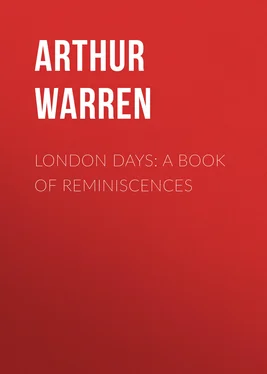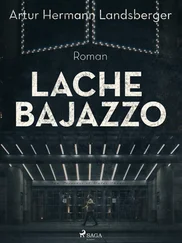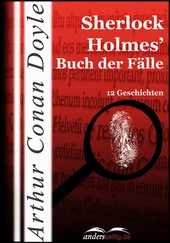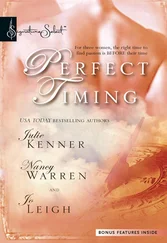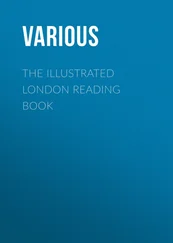Arthur Warren - London Days - A Book of Reminiscences
Здесь есть возможность читать онлайн «Arthur Warren - London Days - A Book of Reminiscences» — ознакомительный отрывок электронной книги совершенно бесплатно, а после прочтения отрывка купить полную версию. В некоторых случаях можно слушать аудио, скачать через торрент в формате fb2 и присутствует краткое содержание. Жанр: Биографии и Мемуары, История, foreign_antique, foreign_prose, на английском языке. Описание произведения, (предисловие) а так же отзывы посетителей доступны на портале библиотеки ЛибКат.
- Название:London Days: A Book of Reminiscences
- Автор:
- Жанр:
- Год:неизвестен
- ISBN:нет данных
- Рейтинг книги:5 / 5. Голосов: 1
-
Избранное:Добавить в избранное
- Отзывы:
-
Ваша оценка:
- 100
- 1
- 2
- 3
- 4
- 5
London Days: A Book of Reminiscences: краткое содержание, описание и аннотация
Предлагаем к чтению аннотацию, описание, краткое содержание или предисловие (зависит от того, что написал сам автор книги «London Days: A Book of Reminiscences»). Если вы не нашли необходимую информацию о книге — напишите в комментариях, мы постараемся отыскать её.
London Days: A Book of Reminiscences — читать онлайн ознакомительный отрывок
Ниже представлен текст книги, разбитый по страницам. Система сохранения места последней прочитанной страницы, позволяет с удобством читать онлайн бесплатно книгу «London Days: A Book of Reminiscences», без необходимости каждый раз заново искать на чём Вы остановились. Поставьте закладку, и сможете в любой момент перейти на страницу, на которой закончили чтение.
Интервал:
Закладка:
Plans had no place in my baggage, at least no plans requiring space. I had practically worked my way to London where I was to join the staff of an American engineering concern who were introducing an invention. Though lacking years I had sufficient application, and I had learned enough of the business to justify my appointment. That, in fact, had been my purpose, and I worked hard to achieve it and uphold it. But I wanted to write. And, being in London, why not write about London? I knew that Mrs. Glasse's recipe for cooking hare had begun, "First catch your hare", and so the prescription for my own case ran, "First learn your London." Meantime I had my vocation to lean on. During the business hours of four years I ran with my vocation, and, out of business hours, followed my hobby.
Old Mother London gave me the key to her streets, and diligently I used it. Into every old church I wandered, and into every old building that had given shelter to Fame when she touched a poet, a philosopher, a painter, a literary man, a tragedian, a soldier, sailor, or a king. And I knew the burial places of those she cherished, and those she flouted, or those she flirted with, no less than the living places of those who still pursued her on any of the grey mornings in which I rambled. They became as familiar to me as any 'bus line, and I became a walking directory to the odd corners where she had preened her feathers for an hour or for a space of years. I became saturated with her legends, and occasionally an arbiter in cases of suspected masonry whose identity rumour and record had disputed or concealed. That was one form of amusement. The play was another.
I was at home in London from the moment of my arrival at Fenchurch Street. It had been a far cry to Fenchurch Street, and when a lad made it in company with a rotund gentleman of Pickwickian build, the chances were sure to be amusing. After trying two or three boarding houses, I settled in chambers just out of Queen Square in Bloomsbury. Murray was in apartments half a mile away, in Marchmont Street. Marchmont Street was shabby in those days, whatever it may be now. On the west side of it, over a tailor's shop kept by her husband, was the shabby, but clean and shining house of Mrs. Floyth, a melancholy woman who had been maid or housekeeper to John Stuart Mill when the manuscript of Carlyle's "French Revolution" was burned to light the fires! I have always wondered if the old lady herself were responsible for that conflagration. It might have accounted for her settled melancholy.
My chambers near Queen Square were in a spacious old house which was panelled and carved from roof to entrance hall. There soon began to meet here, once or twice a month, a congenial group, smoking churchwarden pipes. It called itself the "Quill Club", talked politics, the drama, and books, and the members disagreed as heartily as any human beings could on all the topics of life.
There would have been no interest in listening to another fellow's talk had you been in agreement with him. There were but two rules in the Club: the first that a man should say what he thought; the second—give his reasons for thinking so. When a man failed to sustain his opinion by his reasons he paid for the tobacco. The Quills, as may be supposed, were chiefly of a trade, quill drivers. But they were not entirely so: one was "by way of being" an artist, another was a solicitor, a third was inclined to surgery, a fourth made musical boxes, the fifth was a dentist, and the others pursued literature, at greater or smaller distances, and incidentally contributed small feed to the presses in Fleet Street, or elsewhere. Of a dozen, ten are dead. Some made goals, some fell by the way. But they all enjoyed life and work, for all were young. And sometimes they could pay their bills.
CHAPTER II
LONDON IN THE LATE SEVENTIES
London was a more livable place in the late seventies than it is now, or so it seems to me, as it seems to many others who knew the town in that earlier time. There were not so many means for getting everywhere as there are now, and yet we got everywhere,—everywhere, that is, that we wished to go. We were not in a hurry then, and there was more consideration for the old and the lame than there is now. Now there is none at all in the streets or under them. The electric age was prophesied, but nothing more. Nobody in England believed in prophecies. There were arc lights on Holborn Viaduct and the Thames Embankment, nowhere else, but the incandescent lamp had not appeared. There was nothing electrical, in our modern sense, except the telegraph. The telephone was unknown. It is almost unknown to-day, if London's use of it be compared with New York's. There was no electric traction, and the petrol age was nearly a quarter of a century distant. But for all these drawbacks, as I daresay they may be regarded by the youth of the present hour, London was the most livable place in the world, if you loved cities; it had a charm, a fascination all its own.
That charm is not to be described. How can it be described, any more than the charm of a charming woman? You are conscious of it, you know that there is nothing like it, you are sorry for those who must live elsewhere and cannot come under its spell; they have missed that much out of life. You experience a certain largeness of heart, and would like to give everybody a June in London, but reluctantly acknowledge that every one must take the will for the deed.
But if you attempt to analyse London it will baffle your effort. It is at once so splendid and so mean, so spacious and so meagre, so beautiful and so ugly, so noisy and so quiet, so restless and restful, that the farther you go the more puzzled you become, unless having begun by questioning it you end by accepting. Take it in its own way and you will see that it is in itself a problem that cannot be solved by a study of weeks or months; it is a study for a lifetime, for many lifetimes. For instance: architecturally it is too often saddening and mean.
Some one will fly into a rage when he reads the preceding sentence. He will ask resentfully if I think Westminster Abbey, the Parliament Buildings, St. Paul's Cathedral sad, or mean, or shabby. Of course I do not. Their nobility and beauty almost redeem the hundreds of square miles of common-place and melancholy builders' work that encumbers London. Yet how the mean shops press upon St. Paul's and shut it in! Could anything be uglier than the National Gallery? Could any important thoroughfare be more conducive to depression of spirits than Victoria Street? It's not the old London that is architecturally ugly and mean; it is the modern London, and usually the more modern the greater the affliction to the eye. Somebody said, I think it was Schelling, "Architecture is frozen music." Would not anybody say that the Methodist mountain in Westminster is frozen pudding?
London in the late seventies was architecturally less saddening than now, because less that was pretentious and defiant of good taste had been undertaken. Its public buildings of later date are the worst in Europe, excepting those that have arisen in Germany. Squat, heavy, out of proportion, lacking in dignity, in beauty, they seem to have been erected for the purpose of proving that in architecture the modern Briton will neither imitate nor aspire. "The finest site in Europe" is almost the meanest sight. The marvel is that a capital and a country having so many fine models of earlier date do not repeat them, improve upon them, or attempt even a finer taste. The opportunities have been unrivalled, but about the achievements the less said the better. Acres of slums have been swept away to be superseded by miles of masonry which serve mainly to prevent an acquaintance with good taste. What public "improvement" could be shabbier than Shaftsbury Avenue, meaner than newer Whitehall, or more commonplace than Kingsway and Aldwych? What department of a Government could have blocked a vista so remorselessly as the Admiralty has done, or have betrayed a contempt for beauty more disheartening than the County Council has shown in its latest horror at Westminster Bridge?
Читать дальшеИнтервал:
Закладка:
Похожие книги на «London Days: A Book of Reminiscences»
Представляем Вашему вниманию похожие книги на «London Days: A Book of Reminiscences» списком для выбора. Мы отобрали схожую по названию и смыслу литературу в надежде предоставить читателям больше вариантов отыскать новые, интересные, ещё непрочитанные произведения.
Обсуждение, отзывы о книге «London Days: A Book of Reminiscences» и просто собственные мнения читателей. Оставьте ваши комментарии, напишите, что Вы думаете о произведении, его смысле или главных героях. Укажите что конкретно понравилось, а что нет, и почему Вы так считаете.
